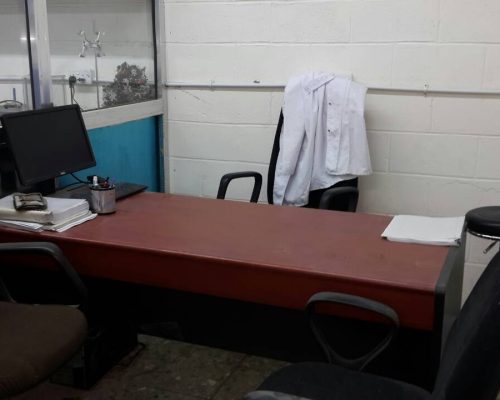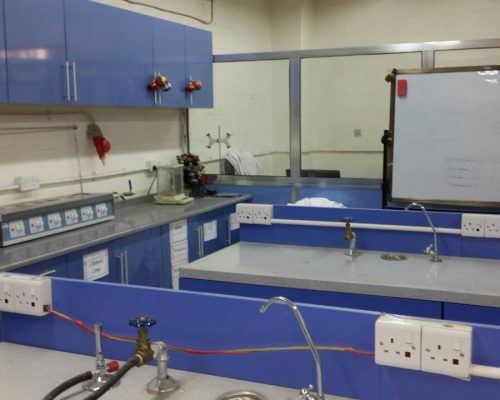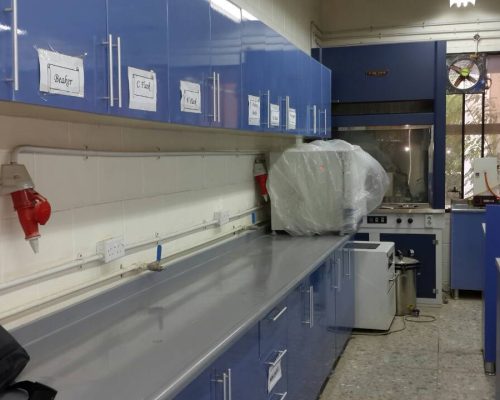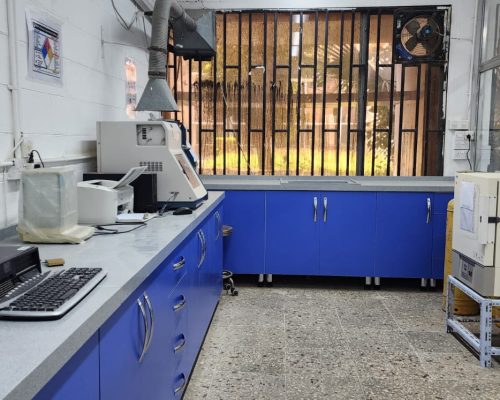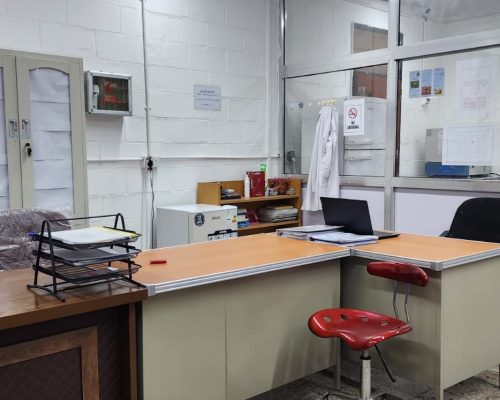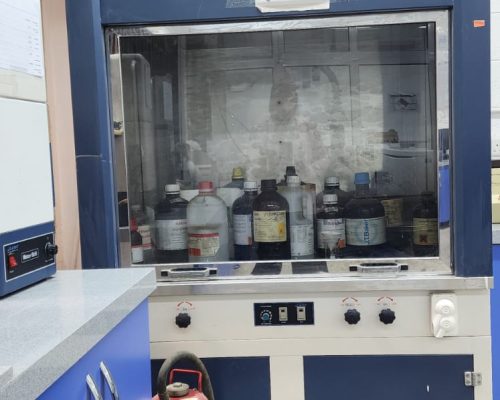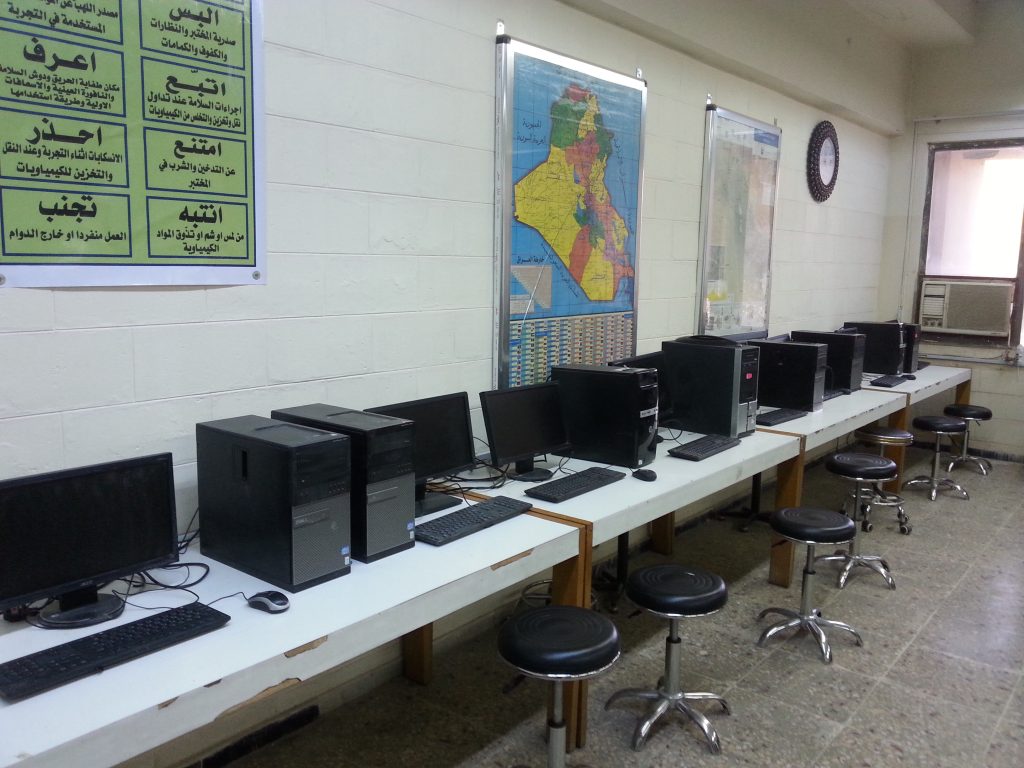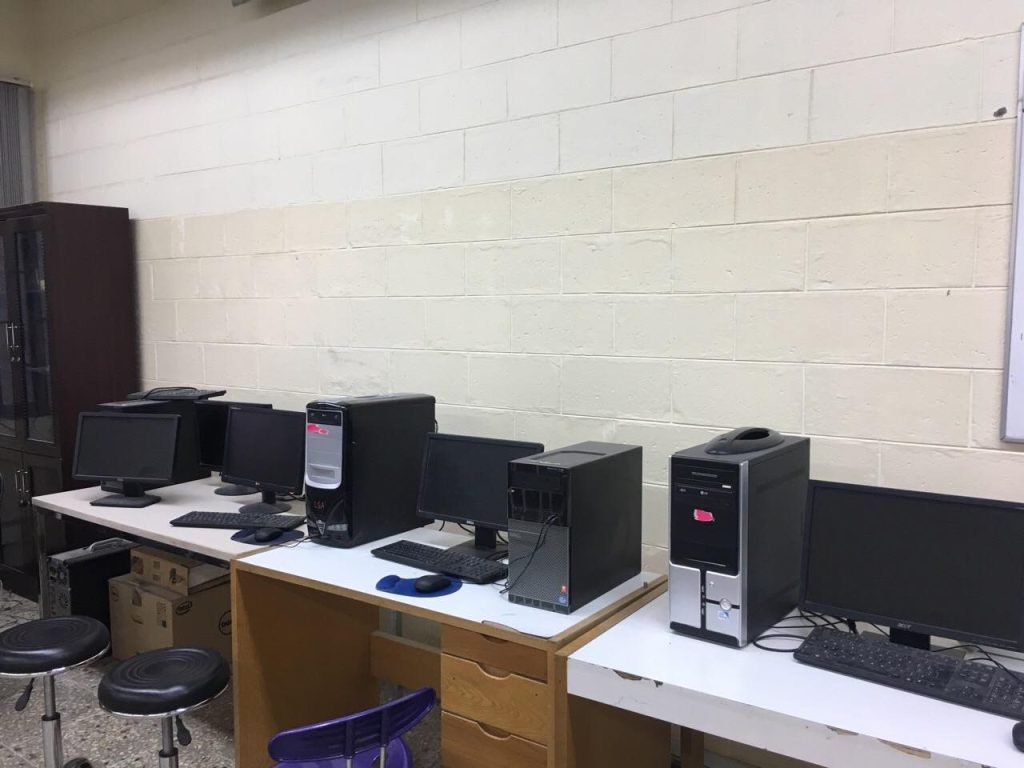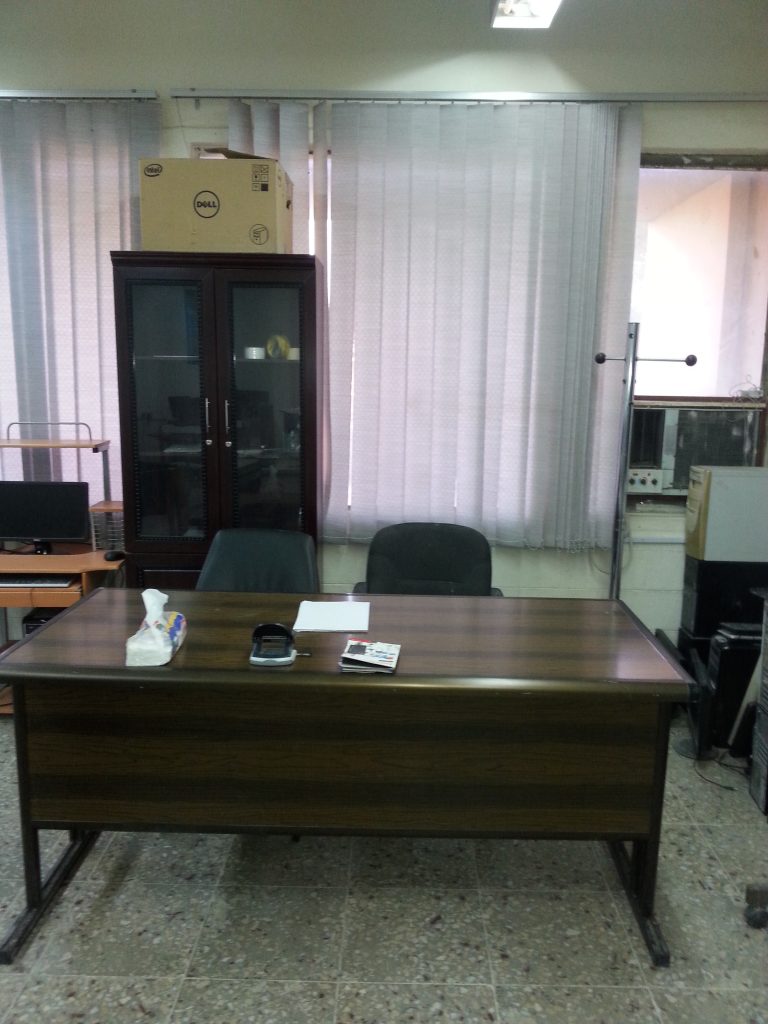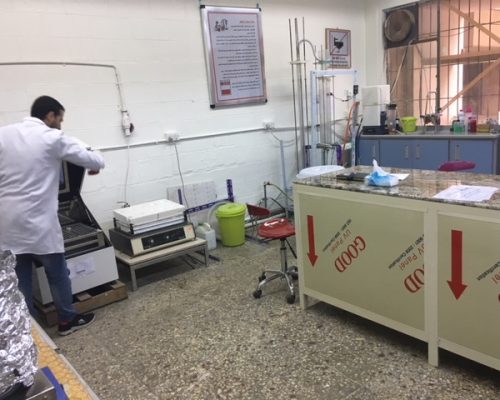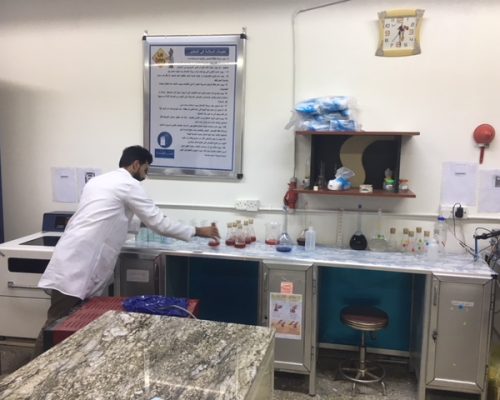The Environmental Department Laboratories offer a fully integrated scientific environment to support research and development in various environmental fields. The department includes specialized laboratories such as the Environmental Engineering Lab, which focuses on improving water and sanitation infrastructure, the Graduate Studies Lab, which allows researchers to advance their environmental research, the Environmental Testing Lab, which ensures accurate environmental sample analysis, and the Computer and Geographic Information Systems Lab, which supports environmental data analysis using the latest technologies.
Vision
The Environmental Engineering Lab aspires to graduate researchers and scientists capable of providing high-level services in the field of environmental health and protection, ultimately focusing on the well-being of humans and the environment.
Mission
The Environmental Engineering Lab is dedicated to producing qualified community members with bachelor’s degrees, possessing high levels of expertise and scientific competence, which enables them to compete and excel alongside their peers in top international universities.
Objectives
The Environmental Engineering Lab aims to achieve the following objectives:
To graduate skilled professionals with high levels of expertise and efficiency, capable of outperforming their peers in global, regional, and local universities.
To employ skills in environmental health to ensure disease prevention by verifying drinking water quality, designing sewer networks, treating wastewater, designing pumping stations, and connecting pumps and pipes.
To study bacterial and natural water pollution, investigate its source, and determine treatment methods.
To develop teaching methods by providing the latest visual, audio, and written materials.
To enhance the curriculum to align with modern scientific advancements.
To focus on the practical aspect of scientific research to achieve tangible results.
To develop educational laboratories by conducting modern practical experiments.
To prepare graduates committed to work ethics, who bear social responsibility and are able to communicate effectively with their peers, whether as members of multidisciplinary teams or as leaders.
Vision:
Applying environmental theory using scientific laboratory settings.
Expanding environmental understanding of laboratory standards and scientific usage methods for experiments and lab tests.
Objectives:
Training graduate students to understand the basic principles of what they study theoretically, benefiting from the results obtained from graduation and postgraduate projects and research to strengthen their theoretical concepts.
Providing a specialized environment for conducting environmental tests and developing control and treatment methods.
Supporting scientific research in the university by providing specialized environmental testing equipment.
Offering consultancy and services for fees to create a self-funding source for the lab.
Contributing to new research in environmental engineering sciences and keeping pace with scientific developments in this field.
Promoting environmental awareness in the field of environmental and laboratory testing.
Vision:
The Computer and Geographic Information Systems Lab aims to excel in providing academic programs that meet global standards in the field of computer science, helping to prepare qualified and trained national talents.
Mission:
To prepare graduates who are qualified and possess high-level skills and adequate experience to join and integrate into the job market, ensuring that students occupy positions that meet the job market needs in the field of computer science.
Objectives:
To equip students with essential and advanced computer skills, enriching their intellectual and technical knowledge in computer science and its various applications.
To contribute to community service through offering training courses, consulting, and continuous education, organizing scientific gatherings in the field of computer science.
To organize lectures, seminars, and workshops beneficial for faculty members, students, and those interested in computer science fields.
To guide and support outstanding students in pursuing postgraduate studies and scientific research.
To develop curricula and courses to meet the needs of the public and private job market, as well as academic accreditation and quality assurance requirements.
To provide essential theoretical and practical foundations for undergraduate and postgraduate students in the field of information systems.
To empower students by introducing them to the tools and skills necessary to offer effective services to the IT industry and community needs after graduation.
To produce graduates who are socially responsible, adhere to work ethics, and can communicate effectively with their peers, whether as members of multidisciplinary teams or as leaders.
Vision:
Applying environmental understanding of theoretical concepts using a laboratory setting.
Expanding environmental understanding of laboratory standards and scientific usage methods for experiments and lab tests.
Objectives:
Training graduate students to understand the basic principles of what they study theoretically, benefiting from the results obtained from graduation and postgraduate projects and research to strengthen their theoretical concepts.
Providing a specialized environment for conducting environmental tests and developing control and treatment methods.
Supporting scientific research in the university by providing specialized environmental testing equipment.
Offering consultancy and services for fees to create a self-funding source for the lab.
Contributing to new research in environmental engineering sciences and keeping pace with scientific developments in this field.
Promoting environmental awareness in the field of environmental and laboratory testing.

